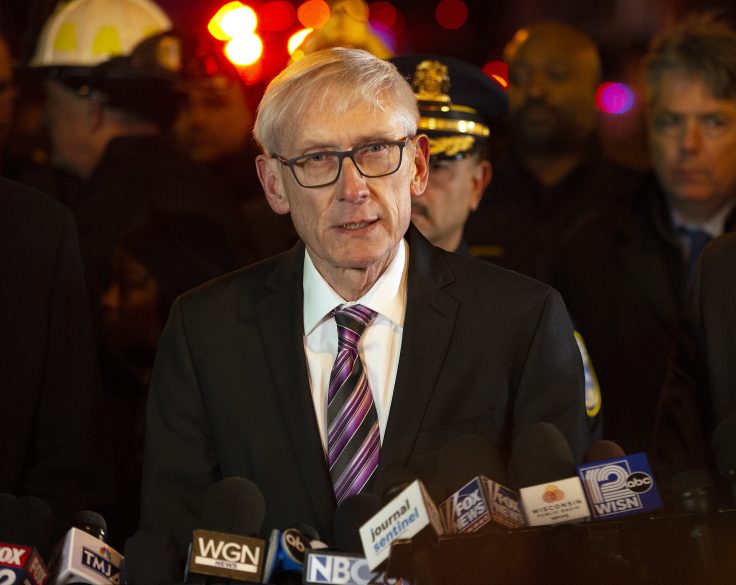A bewildering series of events left the fate of Wisconsin's elections in doubt less than a day before in-person voting was set to begin.
Gov. Tony Evers (D.), who previously said he has no power to suspend elections, issued an extraordinary order on Monday delaying the state's elections until June 9, just 18 hours before precincts opened for voters to cast their ballots. The Republican-controlled legislature claims Evers has no authority to issue such a command and promised an immediate challenge to his order in the Wisconsin Supreme Court.
The drama underway in a key swing state offers a disturbing preview of the electoral challenges likely to beset the country if the coronavirus still has much of America on lockdown in November. House Speaker Nancy Pelosi (D., Calif.) and state Democratic leaders have pressed for mail-in voting, but President Donald Trump and other Republicans oppose that solution. The growing partisan divide over election administration during the pandemic makes confusing reversals like the one playing out in Wisconsin an increasing possibility.
"I cannot in good conscience stand by and do nothing," Evers said in a statement on Monday. "The bottom line is that I have an obligation to keep people safe, and that's why I signed this executive order today."
Wisconsin voters were set to cast ballots Tuesday in the presidential primaries and choose local officeholders and a state Supreme Court justice. A chaotic process is in the offing. Hundreds of poll workers have canceled their assigned shifts and precinct locations have closed, prompting Evers to mobilize the Wisconsin Army National Guard to support election administration. Requests for absentee ballots surged to 1.2 million as of Sunday, but election officials are struggling to meet demand.
At least 15 states have postponed elections given the continuing public health threat. But the Wisconsin legislature, with initial backing from Evers, declined to reschedule the election since terms for many offices on the ballot begin before the end of the month. Evers changed course on Friday and asked the legislature to transition to a vote-by-mail election and extend absentee voting to May 19.
The legislature spurned that request. Evers's Monday order requires lawmakers to convene in a special session Tuesday to take up legislation rescheduling in-person voting.
Since Tuesday's election was set to proceed as scheduled before Evers's last-minute order, the Democratic National Committee and its Wisconsin affiliates asked a federal judge in Madison to relax various election rules. On Thursday, the judge ordered Wisconsin to extend its absentee ballot deadline to 4 p.m. on April 13, six days after the election. State law requires that absentee ballots must be returned by 8 p.m. on Election Day.
The judge also forbade election commissioners from releasing results until April 13, even though the commissioners are not parties in the case.
In turn, the Republican National Committee and the state legislature asked the Seventh U.S. Circuit Court of Appeals to put the Madison judge's decision on hold. The Seventh Circuit refused, prompting an emergency appeal to the U.S. Supreme Court.
"Fundamental fairness of the consistent application of established, accepted rules necessarily furthers the integrity of our electoral process," Republicans wrote in their application to the High Court. "Conversely, voter confusion is a paramount concern whenever a court orders changes to established state election laws on the eve of an election."
The Supreme Court was considering the Republican request to end extended absentee voting when Evers issued his contested order. A decision was expected Tuesday afternoon. How the justices move forward depends on the outcome of those proceedings.
